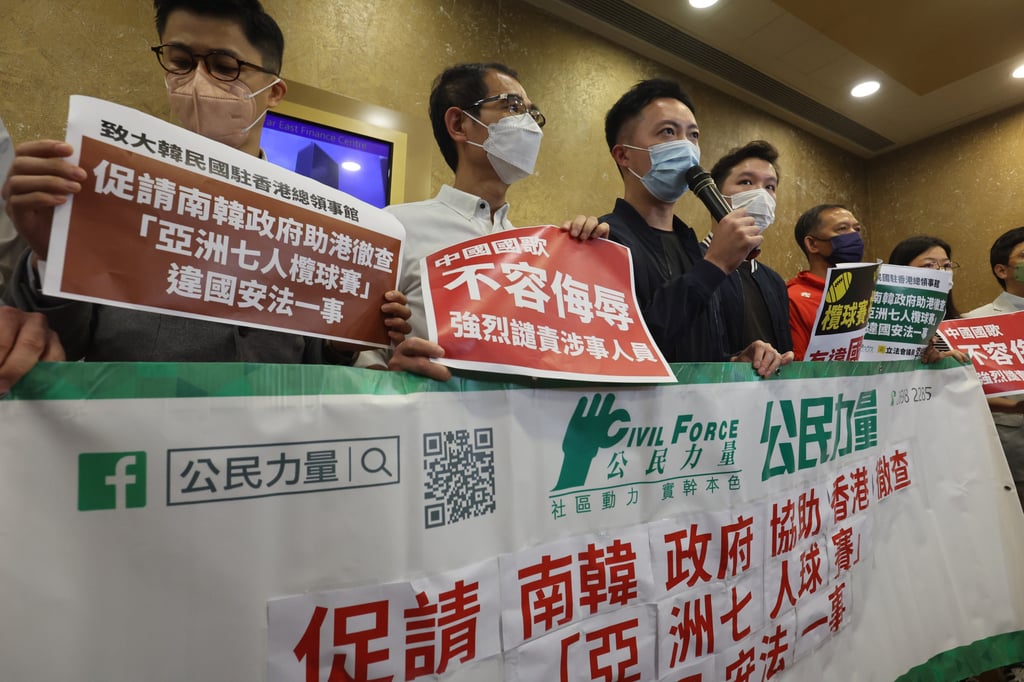Rugby anthem blunder: Hong Kong’s pro-Beijing camp has gone quiet over protest song played at South Korea match. What happened?
- Observers note foreign ministry’s muted response, in contrast with initial show of anger from local politicians, may signal Beijing does not want to affect improving Sino-Korean ties
- Lawmakers and Exco members who spoke out, however, double down on actions, insisting they are not overreacting

Two days after a display of anger and strong words over a 2019 protest song played at a rugby match in South Korea instead of the Chinese national anthem, Hong Kong’s pro-Beijing camp suddenly went quiet.
The central government’s more restrained response over the incident prompted the dialling down on the noise, analysts and pro-Beijing veterans said, adding it indicated mainland Chinese authorities were not keen to let the blunder affect improving Sino-Korean relations seen only in recent months.

While some top advisers to the government defended the necessity of a police probe and a strong rebuke, an international relations scholar urged caution amid complicated geopolitical situations, as the incident, if escalated, could place Beijing in an awkward position and spark bilateral tensions.
The rugby game in Incheon on Sunday came under the spotlight after the protest song “Glory to Hong Kong”, linked to the 2019 social unrest, was played instead of “March of the Volunteers” as the city’s team took to the field for the final against the host nation.
The Hong Kong government denounced the mistake in a strongly worded statement hours after a Facebook clip of the saga went viral, with city leader John Lee Ka-chiu ordering a police probe. Chief Secretary Eric Chan Kwok-ki also expressed strong opposition during a meeting with the Korean consul general on the same day.
Various pro-Beijing lawmakers waded into the blame game the same day, with New People Party’s Dominic Lee Tsz-king staging a protest at the South Korean consulate in Hong Kong, condemning the culprits and urging Seoul to assist the city’s police probe into potential breaches of the national security law.